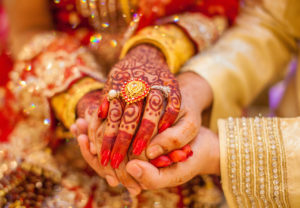DIVORCE IN KENYA: Grounds for Divorce
INTRODUCTION

Kenya has a fault-based divorce system. This is unlike many western countries. Thus, for two persons to divorce, they must prove a matrimonial fault on the part of the other spouse. Kenya does not recognize divorce by consent. The purpose of this article is to introduce the reader to the legally recognized grounds for divorce in Kenya.
The Marriage Act

The Kenyan Divorce process is governed by the Marriage Act Number 4 of 2014 (simply referred to as “the Act”) Section 6 of the Act recognizes 5 different types of marriages as follows:
(i) Christian Marriages
(ii) Civil Marriages
(iii) Customary Law Marriages
(iv) Hindu Marriages
(v) Marriages under Islamic Law.
Each of these types of marriages has unique requirements for registration as well as for their dissolution. Thus, I will discuss the individual types of marriages mentioned above under their own heading for purposes of understanding their divorce and dissolution processes.
(I) Christian Marriages

Christian marriages are performed and registered where a party to the marriage professes the Christian religion. They are often officiated by a church minister who is licensed to officiate such a marriage in a registered religious center such as a church building.
Under Section 65 of the Act, persons who contracted a Christian marriage can petition for divorce on the following grounds;
(a) One or more acts of adultery committed by the other party;
(b) Cruelty, whether mental or physical, inflicted by the other party on the Petitioner, or on the children, if any of the marriage;
(c) Desertion by either party for a period of at lead three years before the presentation of the divorce petition;
(d) Exceptional depravity by either party
(e) The irretrievable breakdown of the marriage.
It is worth noting that all these must be offenses done by the other person other than the person seeking a divorce. Thus, one cannot commit adultery and then rush to court for divorce on the basis of his/her own matrimonial fault. It must be a fault on the party of the other party.
(II) Civil Marriages

Civil Marriages, unlike Christian marriages, are celebrated by the Registrar of Marriages as set out in PART IV of the Act. Just like Christian Marriages, they are monogamous in nature.
Under Section 66 of the Act, unlike in Christian marriages, a party to a Civil marriage may only petition the court for separation or divorce after 3 years of being married. This provision has come under intense judicial scrutiny of late where some courts have held it to be very prohibitive in nature. However, the law still stands as such.
The grounds for dissolution of civil marriage are identical to the grounds for dissolution of a Christian marriage discussed above.
Under Section 66 (6), marriage is deemed to have irretrievably broken down when any of the other grounds for dissolution of the marriage have been proven, where the parties to the marriage have been separated for at least 2 years, where a spouse has been sentenced to imprisonment for a term of more than 7 years, or where a spouse suffers from incurable insanity.
(III) Customary Marriages

Customary marriages are marriages celebrated in accordance with the customs and practices of the ethnic communities that either party to the marriage belongs to.
The grounds for dissolution of a customary marriage are similar to that of civil and Christian marriage, with the added provision recognizing any other ground for divorce under the customs of the particular community.
(IV) Hindu Marriages

These are marriages conducted where the spouses both profess the Hindu Religion. Hindu divorces have unique grounds as such:
(a) Where the marriage has irretrievably broken down
(b) Where the other party has deserted the Petitioner for at least 3 years before the making of the Petition
(c) Where the other party has converted to another religion.
(d) Where since the celebration of the marriage, the other party has committed rape, sodomy, bestiality, or adultery
(e) Where the other party has committed cruelty to the other
(f) Where the other party has committed exceptional depravity on the other.
(V) Islamic Marriages

Islamic marriages are celebrated under Islamic Law. The Act does not set down grounds for dissolution of Islamic Marriages only stating in Section 71 that dissolution of an Islamic Marriage shall be governed by Islamic law. Such divorce processes are processed and presided over by the Kadhi Courts.
DISTINCTION BETWEEN DIVORCE AND ANNULMENT OF MARRIAGES

Many people fail to distinguish between divorce and annulment of marriage. Thus, annulment proceedings are brought to challenge the validity of a marriage as opposed to divorce proceedings which presume a valid marriage that is now subject to dissolution. Therefore, in annulment proceedings, once a court gives an order annulling the marriage, the court simply says that the marriage did not exist in the first place.
Section 73 of the Marriage Act sets out the following grounds for annulment of marriages:
(a) Where the marriage has not been consummated since celebration.
(b) Where at the time of the marriage without their knowledge, either party was in a prohibited relationship
(c) In the case of monogamous marriages, one of the parties was married to another person.
(d) The Petitioner’s consent was not freely given
(e) A party to the marriage was absent at the time of celebration of the marriage.
(f) At the time of the marriage and without the knowledge of the husband, the wife was pregnant, and that the husband is not responsible for the pregnancy.
(g) At the time of marriage, without the knowledge of the petitioner, the other party suffered from incurable bouts of insanity.
A petition for annulment of marriage can only be filed within 1 year of marriage.
CONCLUSION
Divorce in Kenya is fault-based. In subsequent articles, we shall be discussing the individual grounds for divorce and what is needed to prove them. We shall also be discussing the divorce process in Kenya. For free psycho-social support while going through a divorce, please click on the following link to access the Divorce Care webpage: Divorce recovery support groups in Nairobi, Kenya – DivorceCare
Divorce cases often have implications on child custody care and control. To understand more on the principles and law on child custody, please follow this link:

